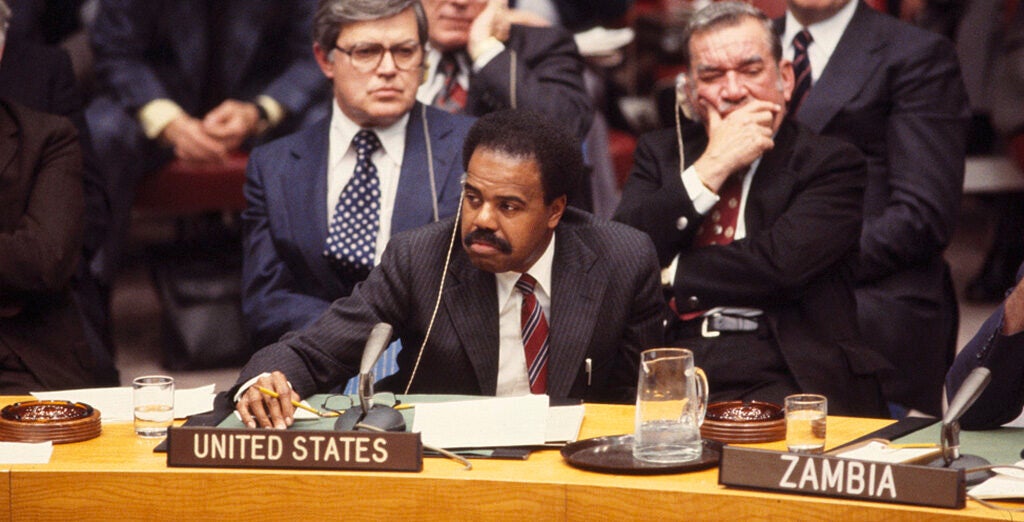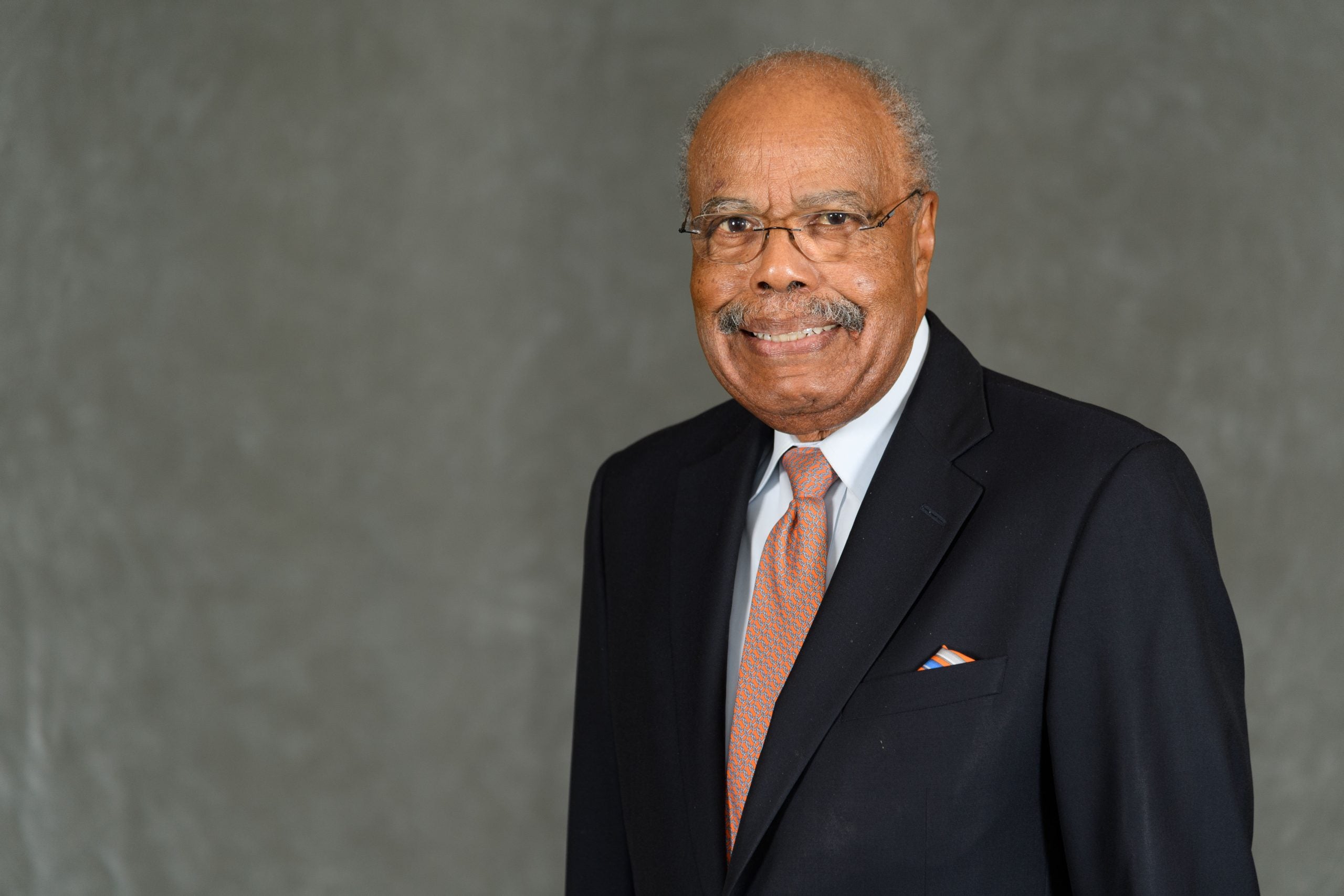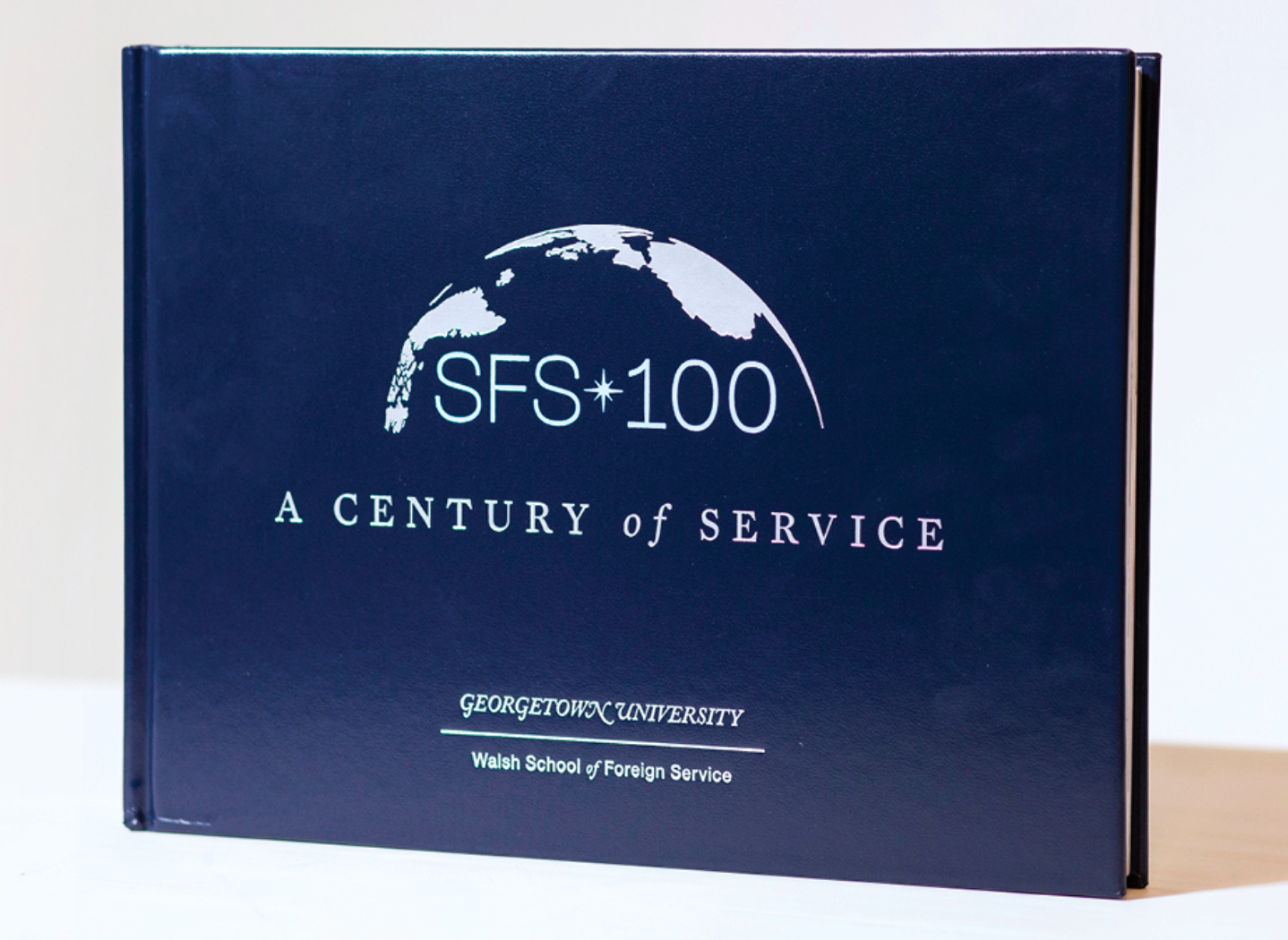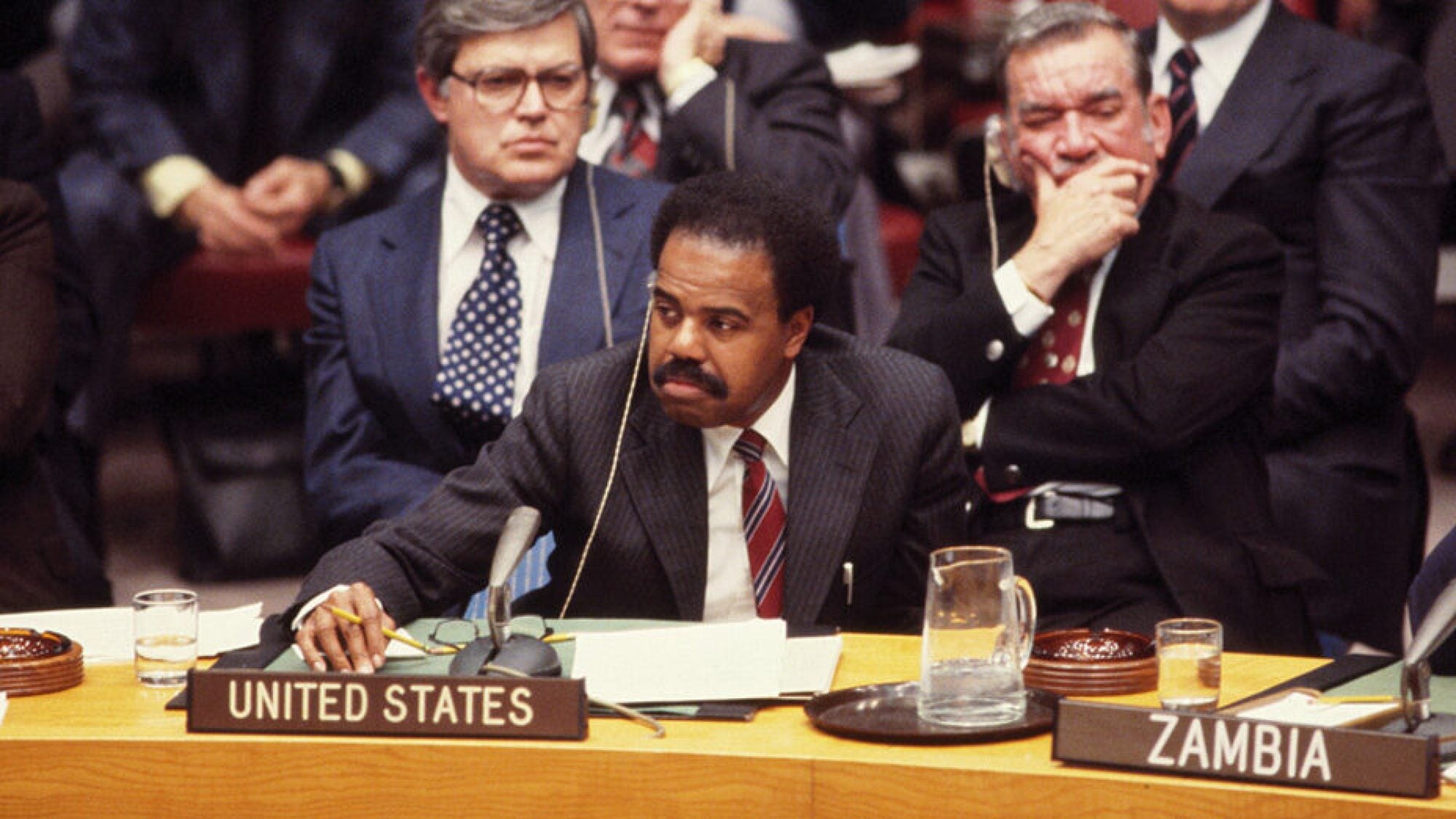On November 5, 1979, U.S. Ambassador to the United Nations Donald F. McHenry (PHD’64), was awakened by a call in his Geneva hotel room, alerting him to an emerging hostage situation in Tehran. “I was told, ‘Get back to New York,’” says McHenry, who had just arrived in Switzerland for a conference on Namibian independence.
Within a month, McHenry had shepherded Resolution 457 — a call to Iran to immediately release the hostages — to unanimous approval by the Security Council, garnering the support of even the Soviet Union. At the same time, he was searching for anyone in Iran who might have influence with the regime. “You had to talk with anyone,” McHenry recalls. “Some of it was a complete waste of time. But you couldn’t ignore anything.”

Six months later, with Ronald Reagan’s inauguration, McHenry left the UN and the State Department, concluding a chapter in his life of public service that had begun twenty years prior. As a Georgetown Ph.D. candidate in 1959, he did coursework while teaching debate at Howard University. “My interest was always in splitting my time between academia and the Foreign Service,” McHenry says. “It became a race between finishing the dissertation and going into State.”
State won, offering him a posting in 1963 in the Office of Dependent Area Affairs, a department of the Office of United Nations. By 1966, McHenry was running the department and a rising star in the State Department.
Despite his successes, McHenry’s proximity to decisions being made at the White House, particularly in regard to the U.S. expansion of the Vietnam War into Cambodia, convinced him to distance himself from the department. After Nixon was reelected in 1973, he left State altogether and instead spent a few years at the Carnegie Endowment for the Humanities.
In the fall of 1976, with the election of Jimmy Carter, McHenry was called upon again to help with a White House transition. At the end of the process, instead of leaving the White House team, he says, “I got pulled in and went off as number three at the U.S. mission to the UN” under the former Georgia congressman and aide to Martin Luther King Jr., Andrew Young.
“Carter decided a number of things about State,” McHenry recalls. “One, he was not going to leave all the choice embassies to wealthy contributors, and two, he was going to appoint a number of Black ambassadors.”

When McHenry was eventually chosen to replace his colleague Young as the permanent UN representative in 1979, he had little time for self-congratulation. Vietnam was already in the process of consolidating its February invasion of Cambodia. In November, the Iran hostage situation began. The following month, the Soviets invaded Afghanistan.
After McHenry left State again a year later, he was inundated with job offers. He accepted an invitation from Peter Krogh, then dean of the School of Foreign Service (SFS), to teach at Georgetown. McHenry joined the SFS faculty in 1981 as distinguished professor in the practice of diplomacy, where he taught for more than 30 years until his retirement in 2014.
“It was the ability to mix the practitioner with the theoretical,” he says, as well as the opportunity to continue to practice: while at the Institute for the Study of Diplomacy (ISD), he served as special envoy to Nigeria. “The school has always accommodated that kind of thing,” McHenry says, “It adds to the value of the education and the job.”

Upon his retirement, the university established the Donald F. McHenry Chair in Global Human Development and created the Donald F. McHenry Global Public Service Fellows Program. Housed within the Institute for the Study of Diplomacy, the fellowship is designed to enhance SFS graduate programs’ recruitment of exceptional scholars and covers full tuition and fees for five incoming SFS graduate students.
In addition to removing financial barriers to an SFS education, the McHenry Fellows Program offers individualized mentorship, career development resources and introductions to a wide network of scholars and practitioners in the world of international development.
In advancing the careers of students committed to transformational global public service, ISD honors the trailblazing career of McHenry by supporting a new generation of diplomatic leaders who embody his commitment to responsive governance, international cooperation and values-led leadership.
A version of this story first appeared in SFS 100: A Century of Service. To read more inspiring stories from the SFS community, get your copy from Georgetown University Press.
